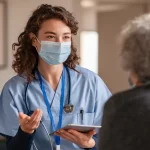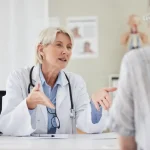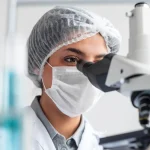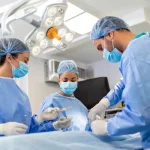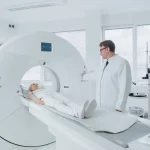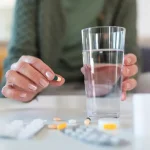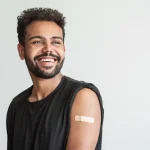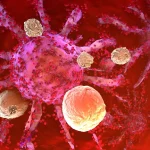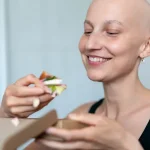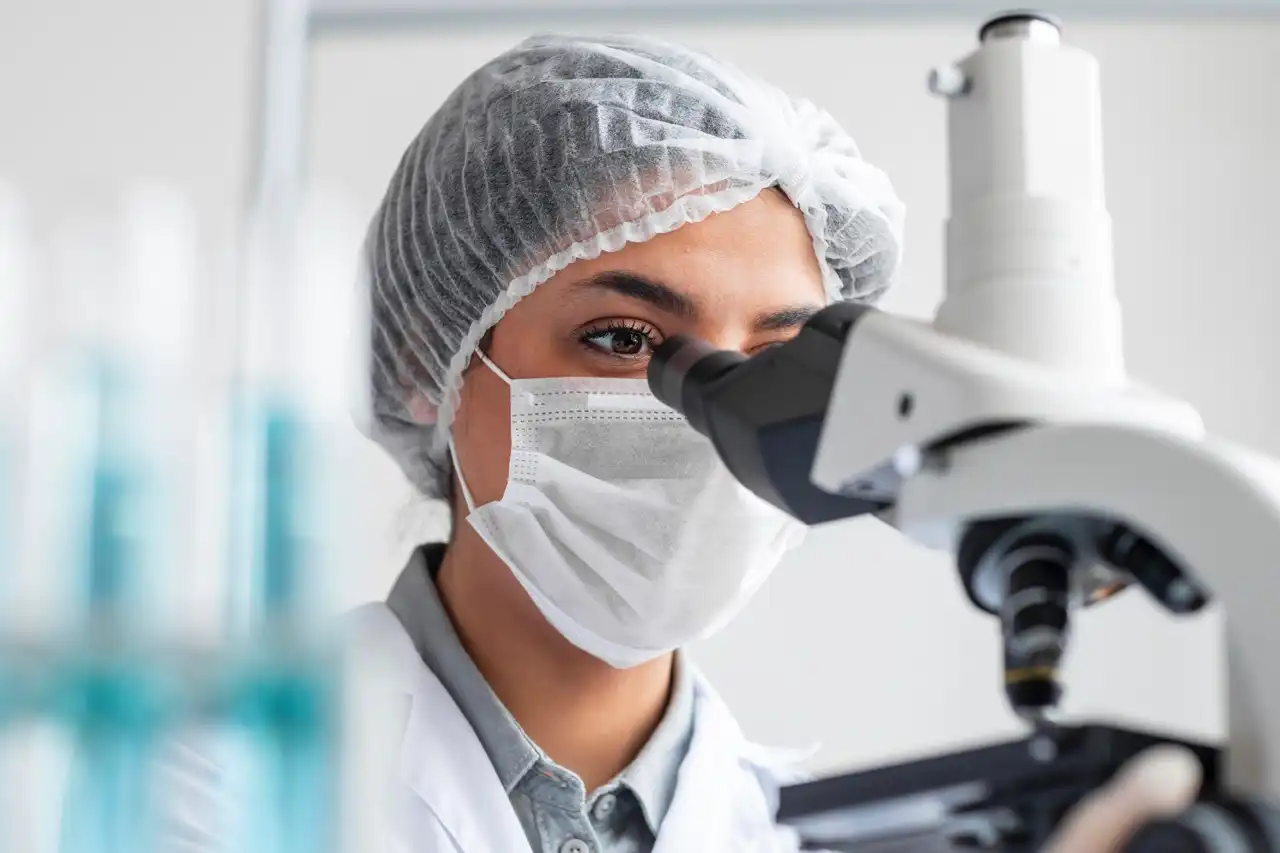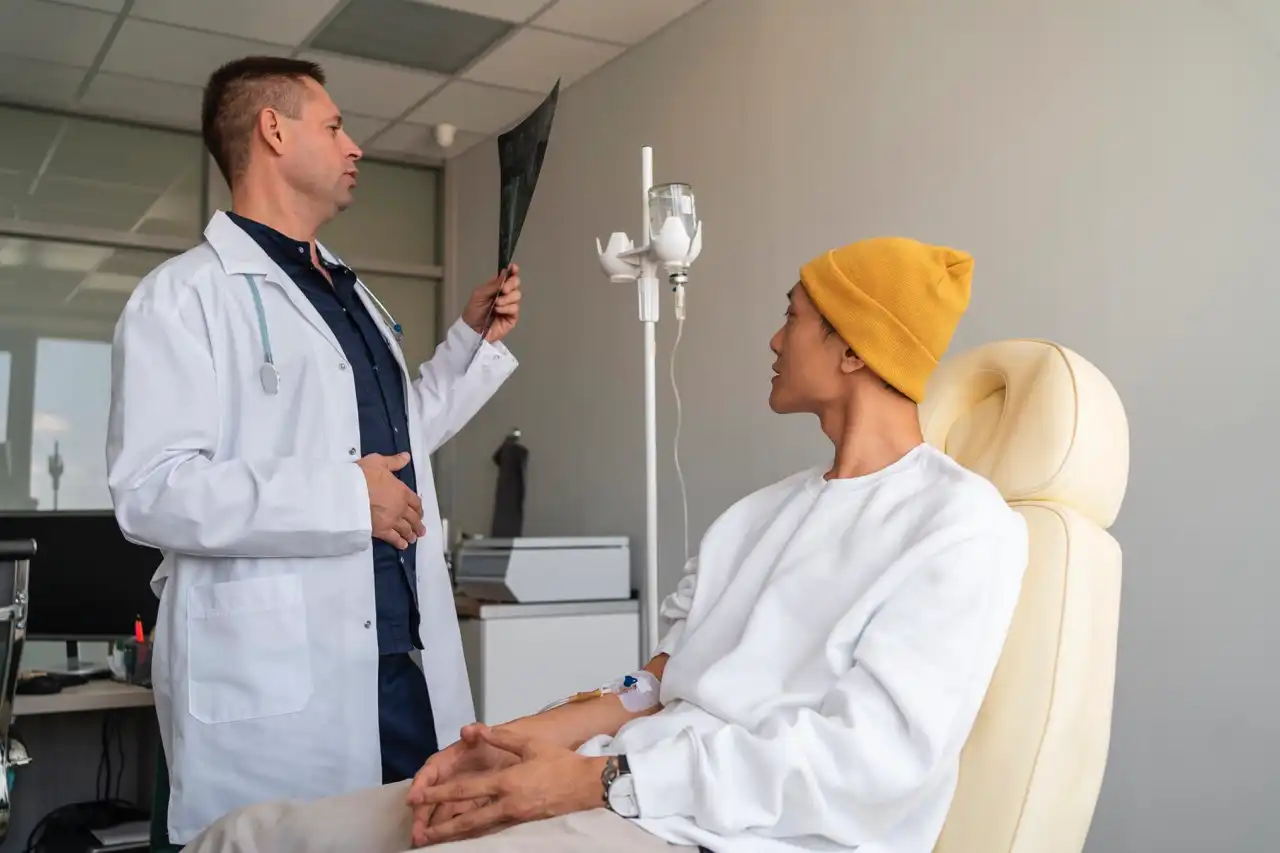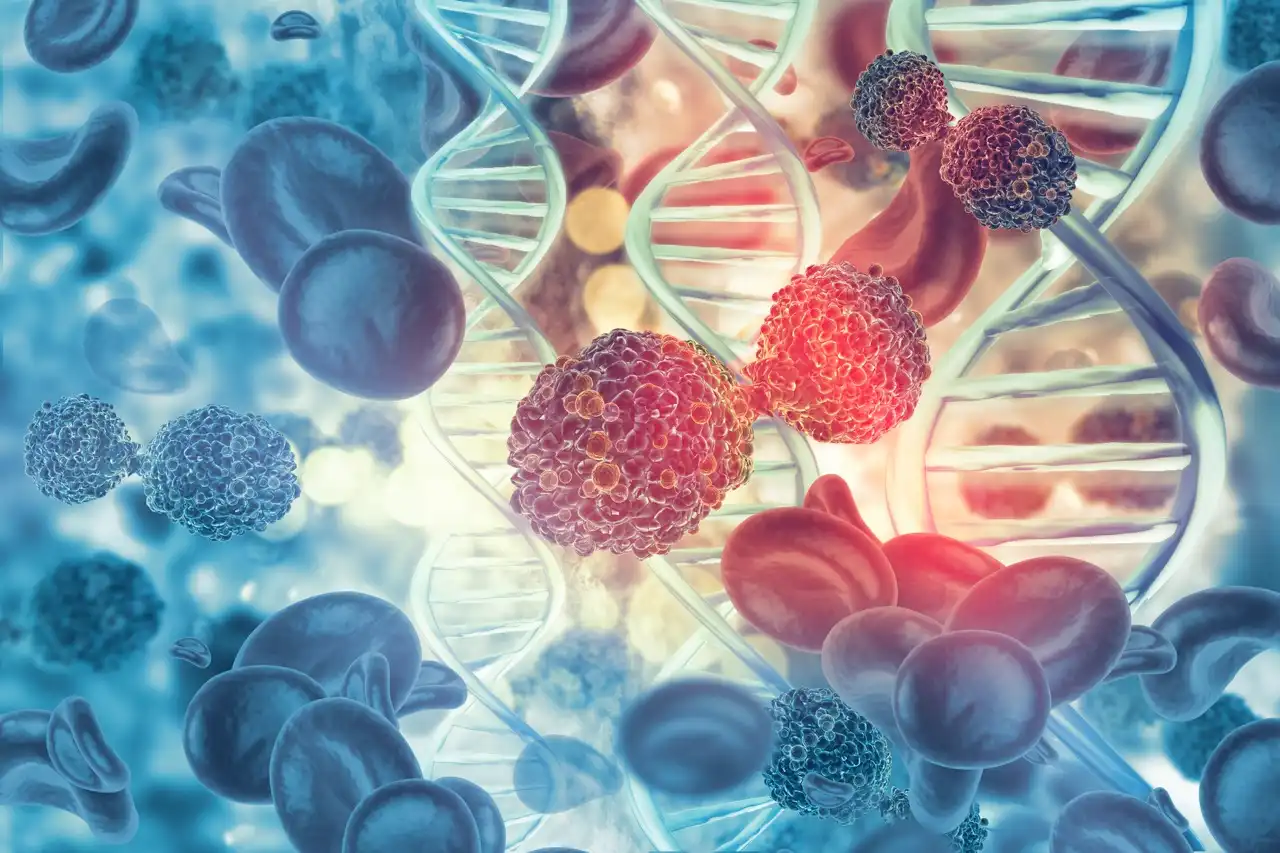For any questions:
So preventing cancer is possible?
The World Health Organization estimates that adopting healthy lifestyle habits could prevent 30% to 50% of all cancer cases. In other words, there are things you can do that will positively impact your health. Here are a few recommendations for decreasing your risk of developing cancer.
Quit smoking
Primary cancers/areas of the body involved: lungs, head and neck (ENT), esophagus, bladder, kidneys, and uterus.
Tobacco is the leading cause of cancer in Quebec. Living smoke-free is still the best way of decreasing the risk of developing cancer. Tobacco smoke contains over 7,000 chemical substances, 80 of which have been shown to increase the likelihood of developing cancer.
People who want to quit smoking can receive assistance and support, free of charge, from their pharmacy or through the government program I QUIT NOW. The government program I QUIT NOW offers support services from healthcare professionals. People interested in the program can register by calling 1-866-527-7383 or by going to the Tobacco-Free Website, at: https://www.tobaccofreequebec.ca/iquitnow.
It is also recommended to avoid vaping, even though electronic cigarettes are not as harmful as traditional tobacco products. Second-hand smoke also poses a health threat and should be avoided whenever possible.
Avoid drinking or limit your alcohol consumption
Primary cancers/areas of the body involved: mouth, esophagus.
Alcohol consumption, even in small amounts, increases the risk of cancer. The more one drinks, the greater the risk.
Alcoholic beverages contain ethanol, a product that, once ingested, transforms into compounds that promote the development of cancer. A glass of wine has the same carcinogenic effect as a drink containing hard liquor!
To learn more:
- Éduc’alcool. (2022). Alcohol and cancer risk. https://www.educalcool.qc.ca/wp-content/uploads/2022/09/ALCOHOL_AND_CANCER_RISK_2023.pdf
- Canadian Centre on Substance Use and Addiction. (2023). Canada’s Guidance on Alcohol and Health, Public Summary. https://www.ccsa.ca/sites/default/files/2024-05/Canadas-Guidance-on-Alcohol-and-Health-poster-2023-en.pdf
The negative health effects of alcohol are compounded in the presence of tobacco use. Consuming both at any given time significantly increases the risk of developing various cancers, most notably of the mouth, pharynx, larynx and esophagus.
Protect your skin from the sun
Primary cancers/areas of the body involved: skin (various cancers, including melanoma).
Several studies have clearly shown that excessive exposure to sunlight equals a greater risk of skin cancer, especially melanoma. Over 80% of skin cancer cases are related to overexposure.
With the progressive depletion of the ozone layer that serves as a protection against the sun’s rays (also called UV rays), adopting good habits is more pressing than ever.
Regardless of the colour of your skin and whether or not you are prone to getting sunburnt, protecting your skin is extremely important. It is recommended to apply sunscreen with a protection index of 30 or more. Seek out shade and wear a long-sleeved top as well as a hat or cap. Applying sunscreen reduces the risk of developing actinic keratosis, lesions that can lead to skin cancer.
Examine your skin regularly, and seek medical advice if you notice any suspicious lesions or anomalies.
Also, avoid tanning salons, as the very high doses of cancer-causing UVA rays generated by tanning beds increase the risk of developing cancer.
Check out our section on skin cancer screening.
To learn more about how you can protect yourself from the sun’s rays and examine your skin for any issues, go to https://www.saveyourskin.ca/prevent.
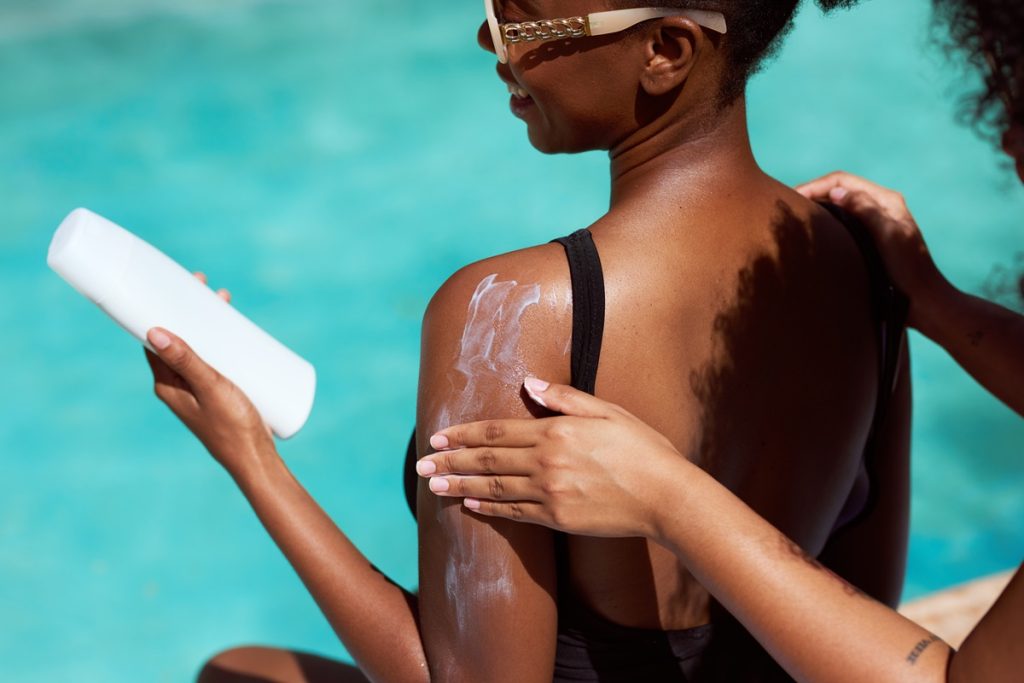
Maintain a healthy body weight
Primary cancers/areas of the body involved: breast (post menopause), colorectal, endometrium, esophagus, kidneys, pancreas, and liver.
There is no miracle cure to reach or maintain a healthy body weight. Focusing on healthy eating and participating in physical activity (e.g., speed walking) every day is particularly important.
Existing studies indicate that people who are overweight or obese have a greater risk of developing cancer, especially cancers associated with hormones. Notably, certain hormones have been observed in greater numbers in people carrying excess pounds.
Being overweight or obese also favours chronic inflammation. The multiplication and high number of certain inflammatory molecules can encourage cell mutations.
Take part in regular physical activity
Primary cancers/areas of the body involved: colorectal, bladder, kidneys, stomach, breast and endometrium (uterus).
Studies have clearly determined that physical activity significantly decreases the risk of developing certain cancers. Physical activity, moreover, is not simply sports but includes all of a person’s movements throughout the day (at home, work or elsewhere) that result in energy being expended.
The World Health Organization (WHO) recommends that adults do at least 150 minutes (2.5 hours) of physical activity every week. If you are not active, begin slowly. What matters is that you move more and stay seated less often.
Physical activity is also recommended for people with cancer, as it has the effect of decreasing the fatigue resulting from the disease itself and the related treatment. It essentially improves the quality of life. The effectiveness of physical activity is well-known and experts recommend that people with cancer participate while and after cancer treatments.
For more tips on how to improve your health through physical activity, click here.

Adopt healthy eating habits
No one superfood can on its own prevent cancer. However, certain foods are associated with a decreased risk of cancer, while the opposite is true for other types of food. It is therefore important to eat a variety of food items and strive to eat more nutritious items and fewer of the foods associated with a greater risk of developing cancer.
Eat more:
- Fruits and vegetables
- Foods with a high fibre content
Eat less:
- Red meat and deli meats
- Products with a high salt content
Eat fruits and vegetables every day.
Decrease the risk associated with several cancers: colorectal, stomach, esophagus, head and neck (ENT), lung, bladder, etc.
Eating fruits and vegetables regularly is the foundation of a healthy diet. Tip: when preparing a meal, make sure that at least half of the plate will consist of fruits or vegetables.
Eat foods rich in fibre, such as legumes and whole grains.
Primary cancer/area of the body involved: colorectal.
A diet rich in fibre and whole grains decreases the risk of colorectal cancer. Fibres promote good digestion and also generate a sense of fullness, which makes it easier to not overeat. According to Health Canada, most people do not eat enough fibre. Foods with a high fibre content include certain vegetables, whole-grain products, fruits, legumes and nuts.
For more tips on how to increase your fibre intake, click here.
Decrease your consumption of red meat and deli meats.
Primary cancers/areas of the body involved: colorectal, stomach, breast, and prostate.
Red meat includes all butchered meat other than poultry products; in other words, beef, pork, veal and lamb. Deli meats are processed or transformed meat products, meaning that they have been either smoked, dried or salted. Ham and bacon are examples of deli meats. It is generally recommended to replace red meat and deli meats with other protein sources: fish, poultry, nuts and legumes.
Here are a few tips for reducing your consumption of red or processed meat.
Limit your salt intake.
Primary cancer/area of the body involved: stomach.
Studies have revealed that a high salt intake combined with salty food items increases the risk of stomach cancer.
To decrease your salt intake, season meals with spices and herbs instead of salt, read the labels on processed food packages to make low- or reduced-sodium choices, and finally, cut back on snacks.
*Canada’s Food Guide is a useful tool in support of sound choices and healthier eating.
Get the HPV and hepatitis B vaccines
While some viruses can cause cancer, there are vaccines that can help mitigate this risk. Consult your physician or pharmacist to see whether these vaccines are recommended in your specific case.
Human papillomavirus (HPV)
Primary cancers/areas of the body involved: uterine cervix, anus, vagina, vulva, penis, head and neck (ORL).
It is believed that the majority of Quebecers will be infected by an HPV over their lifetime, but that most will never be aware that it occurred. While the virus disappears after a few years in most people, the infection can sometimes persist and transform into cancer.
There are over 100 types of HPV, which can infect countless areas of the body. Some types of sexually transmitted HPV can cause cervical cancer, anal cancer, cancer of the genitals (vagina, vulva, penis) as well as some types of head and neck (ORL) cancers.
Vaccination is the best protection against HPV and the related cancer risk. In Quebec, two HPV vaccines are offered free of charge as part of the Québec Immunization Program. The free immunization schedule provides for one vaccine dose in Grade 4 of primary school, followed by a second dose 60 months later, in Secondary 3. People who are not eligible for free vaccination under the Québec Immunization Program can receive the vaccine but will be responsible for the associated cost.
To learn more about the program and the available vaccines, go to the Government of Québec Website.
Hepatitis B and C
Primary cancer/area of the body involved: liver.
Hepatitis is an inflammation or infection of the liver, more often than not as the result of a virus. There are different types of hepatitis viruses, two of which can leave a person at greater risk of developing liver cancer: the hepatitis B virus (HBV) and the hepatitis C virus (HCV). HBV and HCV can cause a long-term infection that increases the risk of developing liver cancer. A vaccine against hepatitis B is available, and there is also a vaccine that offers protection against both hepatitis A and hepatitis B. There is not, however, a vaccine that offers protection against hepatitis C.
The Québec Immunization Program provides for the administration of a combination vaccine against hepatitis A and B. The vaccine is also offered free of charge to people who are increasingly at risk of contracting these infections.
To determine whether vaccination against hepatitis B could help decrease your risk of developing cancer, check out the Government du Québec Website.
Decrease your exposure to radon
Primary cancer/area of the body involved: lungs.
Radon is a radioactive inert gas found in homes; it is invisible and has no odour or taste. Radon exposure is the main cause of lung cancer among non-smokers.
It is recommended to measure the level or concentration of radon in your home to ensure it is not too high. There are ways to lower the concentration if it exceeds acceptable limits.
Test kits can be purchased at various locations such as hardware stores, some libraries and certain associations. The Quebec Lung Association addresses the matter of radon and promotes using a radon detector, which can be bought directly from their Website. Another option is to reach out to a professional who specializes in the measurement of radon levels.
For further information on the risks associated with radon and ways of measuring its concentration, click here.
Take steps to detect any cancers as early as possible
Self-evaluation and screening are measures that can help detect changes in the body that could develop into cancer if left untreated. The sooner a cancer is detected, the higher the survival rate.
Over the past few years, there has been an improvement in the means introduced by the government to help citizens with cancer screening and new programs have been launched in this regard.
For more information on the cancer screening programs available in Quebec and self-evaluation techniques, check the Cancer screening section of our Website.
If you are without a family doctor but worry that you are presenting with signs or symptoms of cancer, contact the Primary Care Access Point (GAP), by dialling 811, and then selecting option 3. The personnel will direct you to a relevant healthcare professional.
OTHER
Other actions in support of cancer prevention
Studies conducted over the past few years have shown that other daily actions can help prevent cancer. More to the point:
- Breastfeeding offers protection against breast cancer. Mothers are thus urged to breastfeed their newborn infants whenever possible. Also, the longer a mother breastfeeds, the greater the protection against cancer.
- Dietary supplements touted as acting to “prevent cancer” should be avoided. Tens of studies have shown that people who take supplements, whether they are multivitamins, vitamins C or E, or beta carotene, exhibit no decrease in their risk of cancer. Taking excessive amounts of these supplements, especially antioxidants, can even prove harmful and disrupt the delicate balance necessary for optimal health. Supplements, truth be told, can never replace the incredible biodiversity of vegetables. Vitamin D, however, is different. It has proven to be a supplement that can boost protection, especially among populations living in Northern regions like Quebec. Your physician will be able to confirm if you could benefit by taking a daily dose of vitamin D.
- It is recommended to sleep a minimum of 6 hours every night.
Suggested reading (in French only): borrow from our Info-cancer Library
- Béliveau, R.et Gingras, D. (2014). Prévenir le cancer – Comment prévenir les risques. Éditions du Trécarré.
- Cohen, L. et Jefferies, A. (2018). Vivre anticancer – Les 6 piliers pour préserver votre bien-être et vous protéger contre la maladie. Robert Laffont.
- Khayat, D. (2021). Prévenir et soigner le cancer pour les nuls. Éditions First.
- Perez, M. (2018). Cancer, quels risques? Si je fume, je bois, je mange mal, je vis dans une ville polluée…. QUAE.
All of the data available under the Information about cancer section of our Website has been checked, validated and documented by scientific publications. Reach out to the Quebec Cancer Foundation at [email protected] to learn more.
Sources
Béliveau, R.et Gingras, D. (2014). Prévenir le cancer – Comment prévenir les risques. Éditions du Trécarré.
anadian Cancer Society. (n.d.). 10 ways to reduce your cancer risk. https://cancer.ca/en/about-us/stories/2020/10-ways-to-reduce-your-cancer-risk
Centre de lutte contre le cancer Léon-Bérard. (n.d.). Alimentation et cancer. https://www.cancer-environnement.fr/fiches/nutrition-activite-physique/alimentation-et-cancer/
ComPARe Study (Canadian Population Attributable Risk of Cancer). (n.d.). https://cancer.ca/en/research/cancer-statistics/prevention-statistics
Gouvernement du Québec. (June 22, 2023). Hepatitis A, B and C. https://www.quebec.ca/en/health/health-issues/stbbis/hepatitis-a-b-and-c
Gouvernement du Québec. (November 6, 2023). Human papillomavirus (HPV). https://www.quebec.ca/en/health/health-issues/stbbis/human-papillomavirus-hpv
Gouvernement du Québec. (n.d.). Statistiques du Registre québécois du cancer. https://www.quebec.ca/sante/systeme-et-services-de-sante/organisation-des-services/donnees-systeme-sante-quebecois-services/donnees-cancer
Government of Canada. (June 15, 2024). Canada’s food guide. https://food-guide.canada.ca/en/
Government of Canada, Health Canada. (June 16, 2023). Radon: About. https://www.canada.ca/en/health-canada/services/health-risks-safety/radiation/radon.html
Government of Canada, Health Canada. (July 26, 2024). Toxins in Tobacco Smoke. https://www.canada.ca/en/health-canada/services/health-concerns/tobacco/legislation/tobacco-product-labelling/tobacco-smoke-toxins.html
Government of Ontario. (June 20, 2024). Cancer prevention and care: Cancer statistics. https://www.ontario.ca/page/cancer-prevention-and-care#section-4
Institut National du Cancer. (n.d.). Cancer de l’estomac. Facteurs de risques. https://www.e-cancer.fr/Patients-et-proches/Les-cancers/Cancer-de-l-estomac/Facteurs-de-risques
International Agency for Research on Cancer. (n.d.). https://www.iarc.who.int
National Cancer Institute. (n.d.). Causes and Prevention. https://www.cancer.gov/about-cancer/causes-prevention
Santé publique France. (May 15, 2023). Quelles sont les conséquences du tabagisme sur la santé? https://www.santepubliquefrance.fr/determinants-de-sante/tabac/articles/quelles-sont-les-consequences-du-tabagisme-sur-la-sante
Save Your Skin Foundation. (n.d.). https://www.saveyourskin.ca
World Cancer Research Fund International. (n.d.). Cancer Prevention Recommendations. https://www.wcrf.org/diet-activity-and-cancer/cancer-prevention-recommendations/
World Health Organization. (n.d.). https://www.who.int/
Content updated in July 2024
